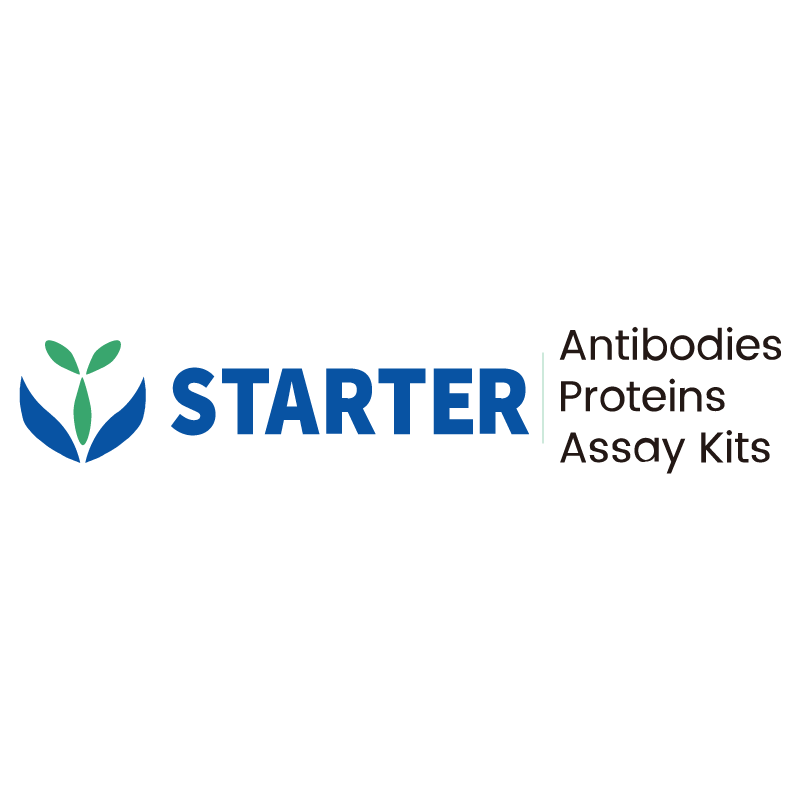WB result of Fetuin A Recombinant Rabbit mAb
Primary antibody: Fetuin A Recombinant Rabbit mAb at 1/1000 dilution
Lane 1: HepG2 whole cell lysate 20 µg
Lane 2: human serum lysate 5 µg
Lane 3: human plasma lysate 5 µg
Secondary antibody: Goat Anti-rabbit IgG, (H+L), HRP conjugated at 1/10000 dilution
Predicted MW: 39 kDa
Observed MW: 50~65 kDa
Product Details
Product Details
Product Specification
| Host | Rabbit |
| Antigen | Fetuin A |
| Synonyms | Alpha-2-HS-glycoprotein, Alpha-2-Z-globulin, Ba-alpha-2-glycoprotein, AHSG, FETUA |
| Immunogen | Recombinant Protein |
| Location | Secreted |
| Accession | P02765 |
| Clone Number | S-1109-5 |
| Antibody Type | Recombinant mAb |
| Isotype | IgG |
| Application | WB, ICC, ICFCM, IP |
| Reactivity | Hu |
| Purification | Protein A |
| Concentration | 0.5 mg/ml |
| Conjugation | Unconjugated |
| Physical Appearance | Liquid |
| Storage Buffer | PBS, 40% Glycerol, 0.05% BSA, 0.03% Proclin 300 |
| Stability & Storage | 12 months from date of receipt / reconstitution, -20 °C as supplied |
Dilution
| application | dilution | species |
| WB | 1:1000 | null |
| IP | 1:50 | null |
| ICC | 1:500 | null |
| ICFCM | 1:50 | null |
Background
Fetuin-A, also known as alpha-2-Heremans-Schmid glycoprotein (AHSG), is a multifunctional plasma glycoprotein that plays a significant role in various physiological and pathological processes. It is primarily expressed in embryonic cells and adult hepatocytes, with lower expression levels in adipocytes and monocytes. Fetuin-A is involved in the regulation of calcium metabolism, osteogenesis, and insulin signaling pathways. It acts as an inhibitor of ectopic calcification, a protease inhibitor, an inflammatory mediator, an anti-inflammatory partner, an atherogenic factor, and an adipokine, among other roles. Research has also indicated that fetuin-A plays a key role in the pathogenesis of several diseases. For instance, it has been identified as a biomarker for neurodegenerative diseases and is associated with conditions such as vascular calcification, insulin resistance, and protease activity control. Furthermore, fetuin-A has been linked to keratinocyte migration and breast tumor cell proliferative signaling.
Picture
Picture
Western Blot
FC
Flow cytometric analysis of 4% PFA fixed 90% methanol permeabilized HepG2 (Human hepatocellular carcinoma epithelial cell) labelling Fetuin A antibody at 1/50 dilution (1 μg)/ (Red) compared with a Rabbit monoclonal IgG (Black) isotype control and an unlabelled control (cells without incubation with primary antibody and secondary antibody) (Blue). Goat Anti - Rabbit IgG Alexa Fluor® 488 was used as the secondary antibody.
IP
Fetuin A Rabbit mAb at 1/50 dilution (1 µg) immunoprecipitating Fetuin A in 0.4 mg human serum lysate.
Western blot was performed on the immunoprecipitate using Fetuin A Rabbit mAb at 1/1000 dilution.
Secondary antibody (HRP) for IP was used at 1/1000 dilution.
Lane 1: human serum lysate 20 µg (Input)
Lane 2: Fetuin A Rabbit mAb IP in human serum lysate
Lane 3: Rabbit monoclonal IgG IP in human serum lysate
Predicted MW: 39 kDa
Observed MW: 50~65 kDa
Immunocytochemistry
ICC shows positive staining in HepG2 cells. Anti-Fetuin A antibody was used at 1/500 dilution (Green) and incubated overnight at 4°C. Goat polyclonal Antibody to Rabbit IgG - H&L (Alexa Fluor® 488) was used as secondary antibody at 1/1000 dilution. The cells were fixed with 4% PFA and permeabilized with 0.1% PBS-Triton X-100. Nuclei were counterstained with DAPI (Blue). Counterstain with tubulin (Red).


